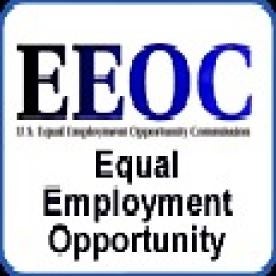When an employment discrimination case goes into litigation, two of the very first things an attorney will want to see is the charge of discrimination that was filed by the employee and the response that was provided by the employer. If the employer initially responded to the investigating agency without the help of legal counsel, mistakes or oversights may have been made during the administrative phase that can affect the case’s overall success during litigation. Here are some common mistakes employers sometimes make when responding to a charge of discrimination.
1. Providing Too Much Information
Under a U.S. Equal Employment Opportunity Commission (EEOC) directive, a charging party is provided the employer's response before a determination is made in the case. While this procedure is patently unfair to employers, it is nevertheless something to bear in mind when preparing the response. An effective position statement provides enough information to demonstrate why certain actions were or were not taken, or what information was known or not known about complaints, but omits extraneous information that is not directly related to the issues at hand. For example, if there was a verbal altercation that was not directly related to the allegations in the charge, that fact can be simply stated without getting into all the details of who said what to whom. Providing too much information may open the door to expand the scope of inquiry.
2. Not Providing Enough Information
On the other hand, failing to respond—or only providing sparse, disjointed facts—is not going to do much to help a case either. The administrative phase of proceedings offers an opportunity to present the employer’s side of the story, and it requires enough detail that an investigator will understand the compelling business reasons and logic for any questioned employment action. It may be helpful to provide supporting documentation if it is available.
3. Responding to All Document Production Requests
The EEOC and state agencies are notorious for sending overbroad production requests to employers. If appropriate, consider objecting to the requests unless the investigating agency can provide specific and legitimate reasons for the information. One of the EEOC’s initiatives is to focus on bringing more systemic discrimination cases, and one of the best ways to initiate these types of cases is through broad requests for document production.
4. Providing Inconsistent Reasons for an Employment Action
An employer that provides an inconsistent or inaccurate explanation for why an employment action was taken against a charging party may face obstacles when advancing a motion for summary judgment. A thorough investigation needs to be conducted prior to responding to an agency to make sure that the correct information is conveyed consistently to the investigating agency.
Key Takeaways
When an employer responds to a charge of discrimination, it may want to do so with an eye towards litigation. For this reason, providing sufficient information and documentation that supports decisions or actions taken regarding the charging party can be useful, while extraneous information that may open the door to further investigation may be problematic. Providing consistent, accurate information may also serve to constrain a charging party’s ability to use shifting explanations later as evidence of pretext.




 i
i


